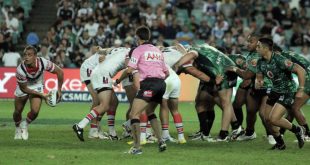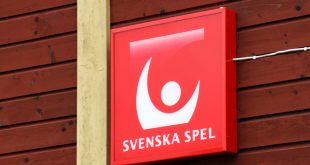Andrew Morgan, International Manager and Senior Editor at Independent Content Services, says proper translation is key to bookmakers succeeding in their plans for global expansion.
Online bookmakers are now truly global. They operate in markets from Europe to America via Asia and Africa, with many looking to extend their reach further as new jurisdictions open their doors to online betting for the first time.
To be a successful global betting behemoth, bookmakers must take a tailored and localised approach to the products and services they offer. This is why so many are now multi-lingual; Unibet and bet365 operate in 18 languages, for example.
But it’s not just established European bookmakers looking to march into new regions; a raft of African and Asian operators have set their sights on Europe, in particular the UK, in a bid to build brand equity and bolster their customer bases.
Kenyan outfit SportPesa, who signed a shirt sponsorship deal with Premier League club Everton ahead of the 2017-18 football season, are one such example.
This trend has been further highlighted by the number of Asian bookmakers that have signed shirt sponsorship deals with Premier League clubs in recent weeks. Letou partnering with Swansea and ManBetX with Crystal Palace are two examples.
Regardless of whether you are an established operator striding into emerging markets, or a new operator taking on the titans of the industry in Europe, language, and its correct translation, will be key to your success.
In this game, simple content mistakes can prove fatal. Take spelling and grammar; a site riddled with spelling mistakes and poorly constructed sentences does little to generate trust among players, which is vital in an industry fuelled by consumer confidence.
Furthermore, differences between US and UK English are psychologically important to punters in both territories and not accommodating for this could give the impression the company does not truly care about their custom. This applies to other languages, too, such as European Portuguese and Brazilian Portuguese, where there are subtle differences in football terminology, for example.
These principles don’t just relate to the direct translation of websites either. They cover all odds and back-end functionality, as well as news and information services – written, audio and visual.
After all, if you translate a betting market incorrectly and punters then place an erroneous bet in good faith, this could cost an operator significantly, both financially and reputationally. The same is the case should there be any errors in the translation of marketing or promotional offers, with mistakes possibly having negative legal implications too.
To avoid this and secure a good quality product, bookmakers must move away from using automated translation services and instead use companies that work with a roster of translators who are native to each country and market they wish to enter. Employing translators who are specialists in the specific language of the iGaming industry is also key.
This is particularly crucial in new and emerging markets where it is sometimes the case that some betting terminology does not even exist. Native translators, however, can overcome this hurdle by dipping into their mother-tongue vocabulary to devise new terms. The same is true should a bookmaker wish to introduce new sports to a territory, for example by offering odds on horse racing or cricket where the popularity of these sports is not as high as it is in the UK. The international growth of Esports, with its unique terminology, is yet another example.
It is therefore important to take a thorough approach. While there may be many pages of text to be translated, maintaining quality and attention to detail is paramount. This should include extensive proofreading and editing, as well as a second opinion from another native speaker. Consistency is also important as this breeds clarity, thus making it easier for first-time punters in particular to place a bet.
Any translation should thus go through several checking stages, not just to ensure spelling and grammar is correct but also to perfect the feel and flow of the copy so that it works in its given context.
For marketing, transcreation is important to get right, too. The process of adapting a message from one language to another while maintaining its intent, style, tone and context simply cannot be done well by a computer program. Skilled human translators can add authenticity and thus boost faith in the brand.
In conclusion, bookmakers – whether new operators entering existing markets, or existing operators entering new markets – must build trust among players if they are to deploy successfully.
They must offer them a world-class experience, but one that has been tailored to their local cultural expectations and quirks. Language is how punters communicate with bookmakers, which is why it is so important to get it right.
Language may seem like a small thing, and automatic translation services provide a simple and efficient way of launching in new markets, but the opposite is actually true. Language is the most important aspect to get right and requires a human approach.








